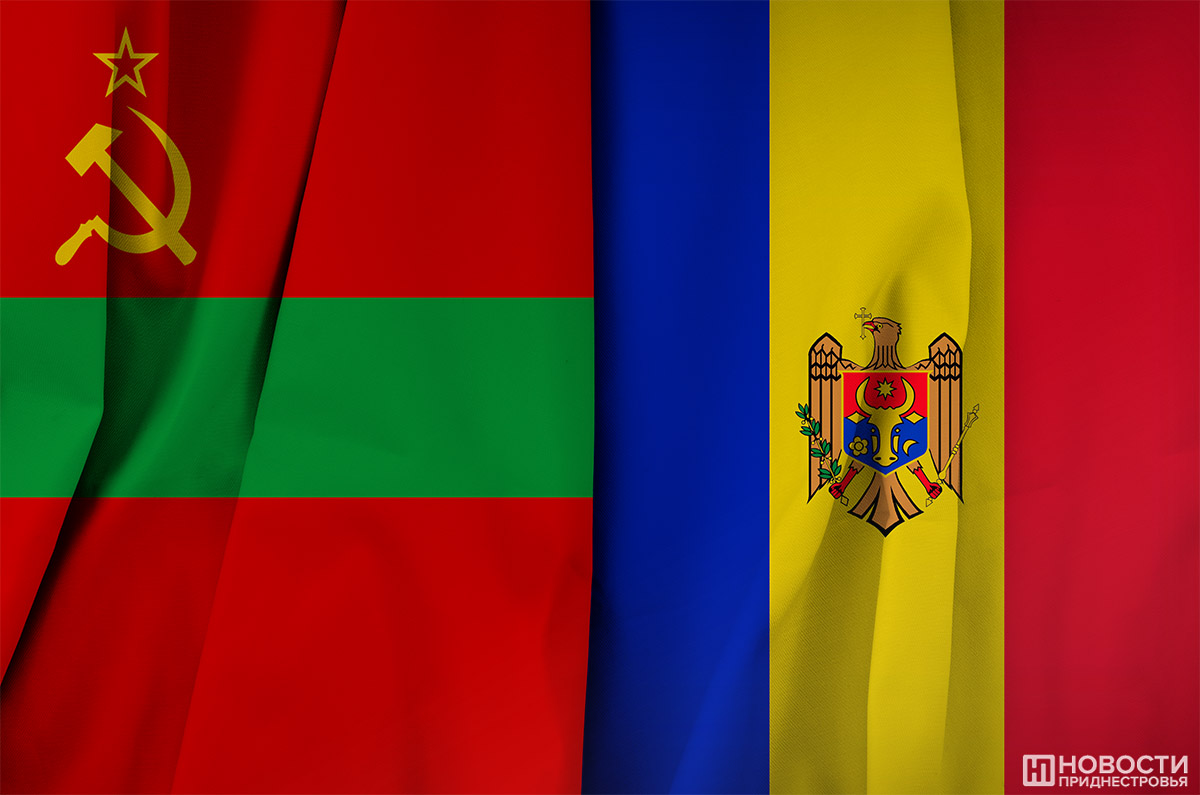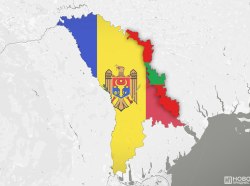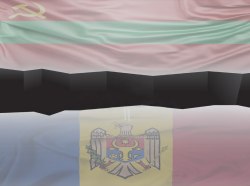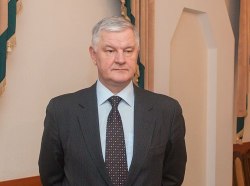Tiraspol, November 24. /Novosti Pridnestrovya/. The story of the preparation and then failure of the signing of the Kozak Memorandum, which occurred exactly 20 years ago, showed that the Moldovan-Pridnestrovian settlement depends on two important factors. The first is the willingness of Tiraspol and Chisinau themselves to negotiate and seek compromises, and the second is taking into account the interests of foreign players.
This opinion was expressed during today’s expert discussion at the Pridnestrovian State University by political scientist, Head of the Bureau of Social and Political Research Mediator Sergey Shirokov. The discussion was arranged by the Institute of Public Administration and Social Sciences and the Humanities, as well as the Center for the Study of Peacemaking at PSU.
“We are in an area where the interests of global players intersect: Russia, the USA, the European Union. While the process of the Moldovan-Pridnestrovian settlement depends on their ability to find compromises and some common ground,” the expert stated.
He recalled that the signing of the Kozak Memorandum was disrupted precisely because of external interference from the US and the EU. “It was then, 20 years ago, that during the negotiation process we felt what foreign interests are and how much they can influence our lives,” Sergey Shirokov noted, drawing attention to the fact that that day the same Western players, in particular the EU had become even more powerful in the region, and their influence on Chisinau was greater.
The expert emphasized that the idea of creating the Kozak Memorandum was not some kind of “Moscow conspiracy” (as is sometimes claimed in the Moldovan and Romanian media – ed. note), but belonged exclusively to the Republic of Moldova`s authorities. “This was the personal wish of the then President of Moldova Vladimir Voronin, and Vladimir Putin supported it by delegating the first deputy head of his administration, Dmitry Kozak,” the political scientist noted.
He also recalled that the idea of a federal state had been proposed since 2002 at the initiative of the OSCE as one of the ways out of the negotiating impasse which the PMR and the RM were then located in.
“This was a search for the most optimal models that would take into account and protect the interests of Pridnestrovie, which was reflected in the Kozak Memorandum. Until now, in 20 years in our negotiation process, a document of this level has not been created,” Sergey Shirokov stated.
He said that the negotiation process on the memorandum was very complex, confidential, Dmitry Kozak often acted in “shuttle diplomacy” mode between Tiraspol and Chisinau.
“In October 2003, the document was initialed, and there was only one step remained: the visit of the President of Russia, a joint meeting of the heads of Pridnestrovie and Moldova, at which this document was to be signed and come into force,” the expert recalled.
At the same time, he emphasized that Tiraspol, Chisinau and foreign players, if they are all committed to a peaceful and political settlement of the Moldovan-Pridnestrovian conflict, still have no other way than to create and sign a document that will describe the basic principles of relations between the PMR and the RM.
Let us recall that the signing of the Kozak Memorandum was supposed to take place on November 25, 2003. However, literally at the last moment, on the night of November 24-25, Vladimir Voronin, under pressure from the West, primarily the American Embassy, refused to sign it. Vladimir Putin's visit to the region was disrupted.
Dmitry Kozak then stated that the Moldovan authorities` actions were “beyond good and evil.” Voronin himself later claimed that it was “the devil`s work.” “I don’t want to say that the devil intervened, but some demonic forces were definitely working against all this,” the ex-president of the Republic of Moldova said in an interview with NTV Channel.
According to the Kozak Memorandum, Moldova was supposed to become a federation, be a neutral and demilitarized state, while Pridnestrovie would receive a special status in it, retaining its full title (the Pridnestrovian Moldavian Republic) and many elements of independent statehood.
In accordance with the document, the Russian stabilization peacekeeping forces of no more than 2 thousand people, without heavy military equipment and weapons, would be located on the territory of the united federal state for the transition period until 2020.
After the failure of the signing of the Kozak Memorandum, the Moldovan-Pridnestrovian negotiation process is steadily deteriorating. In relations between Chisinau and Tiraspol, new problems are emerging that are practically not being resolved, primarily due to the fault of the Moldovan side.
Official representative of the Russian Foreign Ministry Maria Zakharova, who today commented on the 20th anniversary of the memorandum, drew attention to the fact that over the past two decades, “neither the Moldovan side, nor its Western sponsors, nor the OSCE have been able to offer any clear alternative.”
“The current impasse in the Pridnestrovian settlement is explained by Chisinau’s persistent reluctance to respond positively to Tiraspol’s repeated calls to begin negotiations on the principles of a comprehensive solution to the Pridnestrovian problem. Obviously, no progress can be expected without a change in this approach by the Moldovan side,” the representative of the Russian Foreign Ministry emphasized.








